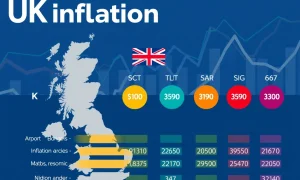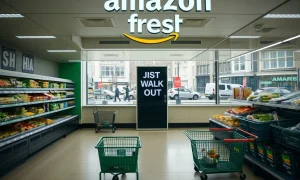British households face an unprecedented fiscal squeeze as Chancellor Rachel Reeves prepares what could become the most significant tax raid in a generation. The Treasury’s desperate search for £30bn in new revenue has put everyday treats like chocolate bars squarely in the crosshairs, potentially breaking Labour’s manifesto promises and deepening the cost-of-living crisis for millions.
Britain’s Chocolate Tax Budget Dilemma
The Treasury confronts a perfect storm of economic challenges that necessitate drastic measures. Consequently, officials work frantically to address a £30bn shortfall following expected productivity downgrades from the Office for Budget Responsibility. This chocolate tax budget crisis stems from several critical factors:
- Productivity forecasts set for significant downgrade before November’s budget
- £40bn in previous tax hikes creating cumulative pressure
- Inflation projections showing UK leading G7 at 3.5% this year
- Private sector growth slowing to weakest pace since May
How the Chocolate Tax Would Impact Consumers
The proposed chocolate tax represents just one component of a broader fiscal strategy. However, this measure particularly targets sugary snacks and crisps, directly affecting household grocery budgets. Meanwhile, the Treasury considers multiple revenue-raising approaches simultaneously:
- Extended income tax threshold freeze potentially draining £7.5bn from pay packets
- VAT threshold reduction from £90,000 to £30,000 dragging small firms into tax net
- Pensioner taxation increases affecting retirement income
- Broken manifesto promises on income tax, VAT, and National Insurance
Economic Backdrop of the Chocolate Tax Budget
Britain’s economic landscape provides context for these drastic measures. The OECD forecasts confirm the UK faces the highest inflation in the G7, primarily driven by soaring food costs. Additionally, S&P Global data reveals private sector growth slowing alarmingly. Economists consequently warn about stagflation risks—the toxic combination of high prices and low growth that could devastate economic recovery.
Political Reactions to the Chocolate Tax Proposal
Opposition parties quickly condemned the proposed chocolate tax budget measures. Shadow Chancellor Sir Mel Stride accused the government of “taxing Britain into stagflation,” emphasizing that “you can’t tax your way to growth.” Conversely, Chancellor Reeves defends the approach, citing Britain’s long-standing productivity issues since the financial crisis. She insists Labour’s reforms will ultimately attract talent and investment despite short-term pain.
Broader Implications of the Chocolate Tax Budget
The Resolution Foundation, influential in Labour policy circles, supports comprehensive tax reforms. They argue for “leveling the playing field” between different income forms. However, critics warn these measures represent a betrayal of voter trust. Furthermore, the cumulative effect of nearly £70bn in tax increases within just over a year could fundamentally reshape Britain’s economic landscape and household finances for generations.
FAQs
What exactly is the proposed chocolate tax?
The chocolate tax would impose levies on chocolate, crisps, and sugary snacks as part of broader fiscal measures to raise £30bn in revenue.
When will the final budget decision be announced?
The Chancellor will reveal the complete budget package on November 26, following the Office for Budget Responsibility’s updated forecasts.
How much could the chocolate tax cost consumers?
While exact figures remain unspecified, similar sugar taxes in other countries have increased product prices by 10-20%.
What other tax changes are being considered?
The Treasury examines income tax threshold freezes, VAT threshold reductions, and increased pensioner taxation alongside the chocolate tax.
How will this affect small businesses?
Reducing the VAT registration threshold from £90,000 to £30,000 could force thousands more small firms to charge VAT.
What is the economic justification for these measures?
The government cites productivity forecast downgrades and the need to balance books despite breaking manifesto promises.








